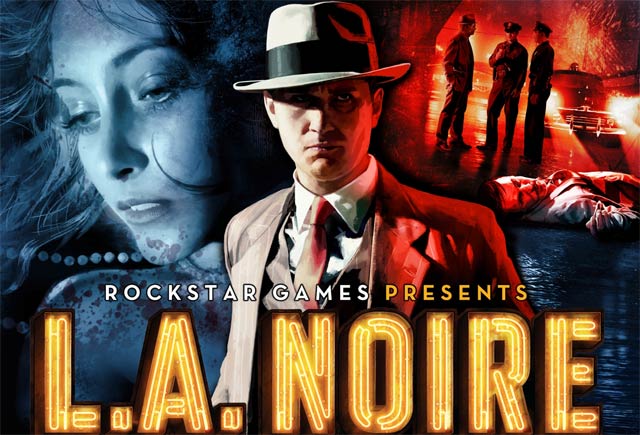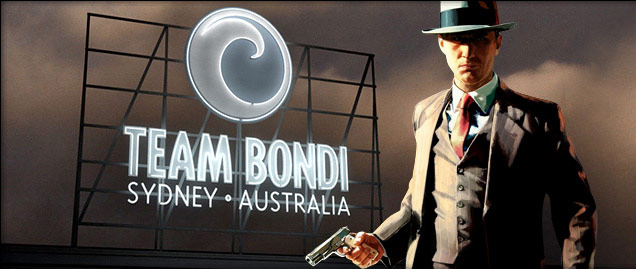Talk: “Team Bondi, L.A. Noire and The Truth: The Perils of Online News”, October 2011
This is the transcript of a presentation I gave at the Brisbane Emerging Writers Festival on Saturday 15 October 2011, as part of a panel discussion around the topic of “Writing online – How different is writing for an online audience, how can you do it creatively, and what are the challenges and opportunities for writers working in this field?”
Footage of my presentation is embedded below.
++
Team Bondi, L.A. Noire and The Truth: The Perils of Online News
by Andrew McMillen
This is a cautionary tale about online journalism. It’s about learning first-hand how the internet can be a beautiful and terrible place to break news. It’s about choosing what kind of writer you want to be.
In June, the biggest story of my career was published. It was the result of four months of investigation, based on my interviews with 11 former employees of a company named Team Bondi, who made the biggest, most expensive video game ever made in Australia, called L.A. Noire. These 11 sources all spoke to me on the condition of anonymity. Between them, they’d spent a combined 24 years at Team Bondi. They each alleged that their experiences working there were uniformly terrible: long hours, no overtime pay, a praise-free workplace led by a guy who treated them like crap. As a result of these factors and high staff turnover, the game took seven years to make, which is an incredibly long time in the games industry. I put these allegations to the Team Bondi founder, who did not deny what his former employees had told me, and made no apologies for his style of management.
My story encapsulated all of this, and was published on the gaming website IGN. Within 24 hours it received over 120,000 hits, and was being reported and analysed by the gaming media around the world. My four months of patient work – including building trust with my sources, and many conversations with IGN’s editors about the story’s final shape – were reduced to a handful of quotes and rushed summaries rewritten by other gaming journalists. To my knowledge, nobody tried to track down my 11 sources and verify what they were saying, nor did anyone seek additional comment from Team Bondi.
Soon after the story was published, two other former employees emailed me, and provided some more information, including company emails they’d saved from their time at Team Bondi. This new information shed more light on the fact that the company had been stringing their employees along for years, consistently saying that the game was close to being finished, even though it clearly wasn’t. I combined this new information into a supplementary feature that was published on the gaming website, GamesIndustry.biz.
One of the more interesting comments made by one of my sources in this second story related to the breakdown of the relationship between Team Bondi and Rockstar Games, who published L.A. Noire. You might know them as the guys behind games like Grand Theft Auto and Red Dead Redemption. My source said, and I quote:
“I’ve heard a lot about Rockstar’s disdain for Team Bondi, and it has been made quite clear that they will not publish Team Bondi’s next game. Team Bondi are trying to find another publisher for their next title, but the relationship with Rockstar has been badly damaged.”
Now, keep in mind that these are informed comments made by a person who worked at this company for a few years. Still, these are some pretty strong allegations to make, about some high-profile businesses. My source has inside knowledge, for sure, but it’s very easy to start these kinds of rumours – namely, that one of the world’s best-known videogame companies has decided to cut ties with the Australian studio that they’d sunk millions of dollars into. In the eyes of every sane and rational person in the world, though, allegations and rumours stay just that until they’re either confirmed or denied by those in the know.
Over the next couple of days, I was surprised to find that many websites were not exercising caution when publishing these additional rumours. Some sites didn’t even acknowledge the source of these allegations, instead simply saying that, quote “Rockstar have decided not to publish Team Bondi’s next game”. Full stop. It was alarming and disappointing to see my work skewed beyond its original form, purely because other writers didn’t care enough to provide full context.
To complicate the situation, neither Rockstar nor Team Bondi made any public comments on any of these matters. I learned during this process that their silence bred a kind of quiet acceptance of ‘the facts’ of my stories – which is a really shitty thing. To this day neither company has publicly commented on what I reported.
This whole experience was simultaneously exhilarating and depressing for me. Exhilarating because it was the first real newsworthy story I’d worked on, and I got a kick out of watching it being passed around the world. Depressing because I also watched commenters misinterpret my findings, and fellow journalists misrepresent my work in their editorials. It made me wonder what would’ve happened if I was less restrained with my own analysis and storytelling. Arguably, my stories would never have been published if they didn’t meet editorial standards, but the manner in which other online publications were loose with the facts made me wonder how far I could’ve stretched the truth and gotten away with it.
This is an interesting thought to entertain. And I should point out that my two published stories on this topic did not stretch the truth in any way. But hypothetically, let’s say that I’d fabricated a few quotes that were supposedly made by my anonymous sources. The reader wouldn’t know any better, and it’s doubtful that I’d even get found out. The story was re-reported with such breathless enthusiasm, often containing only the most inflammatory and controversial quotes, that it would barely have mattered. The success of the stories, and the additional opportunities that have since been offered to me, might have led me down an entirely different path. I might have become addicted to seeking easy controversy in my journalism, had I made that choice.
I didn’t, and I haven’t. I’m glad I was thorough and responsible in my reporting, but the alternative is still fun to think about occasionally.
This experience taught me a valuable lesson, about how quickly people tend to believe what they read online as the truth, especially in the absence of denial from the parties in question. The more the story was reported around the internet, the more true these allegations became to most readers. This is reflected in the comments sections of these articles. I watched the tide turn from acute doubt, to utter contempt for Team Bondi and Rockstar, in a very short period.
This experience taught me that no matter how thorough and careful I am with my own work, once a story is published online, it’s completely out of my hands. I think that, in the rush to ‘first’, some web publishers are a little loose with their words. This is troublesome, because whoever reads their articles may not have the time or inclination to read the initial source material, and if a website has their facts wrong when re-reporting a story, then the reader’s understanding of a situation may be compromised. It’s hard to shift facts in people’s minds once they’ve come to a conclusion, and I think web journalists, editors and publishers have a more pronounced responsibility than their print counterparts to check the facts and exercise caution before hitting ‘publish’.
It’s tough, though, because on the internet, there is little incentive for this kind of cautionary, responsible journalism. Inflammatory and controversial stories spread much faster than their circumspect alternatives. This has always been the case, with any kind of news, but the trouble with the web is that the publishers of these kinds of stories are rewarded with traffic, which in turn directly benefits them, as advertisers are more willing to pay them to run ads on their sites.
A few thoughts to close. Writing for the web, it’s very easy to become swept up in instantaneous, inflammatory, controversial reporting. But I urge you not to go down this road. To do so is to toss away your integrity, to swallow your pride and sense of self-worth in favour of short-term gratification. It is a fucking shame that online journalism appears to be built on this principle, and that it is so ingrained in our day-to-day web browsing that you probably don’t even notice.
Like I said, there’s little consequence for following the path of ‘publish first, fact-check second’. But if you have even a shred of integrity, again I urge you: do not take the path of least resistance. Always err on the side of caution before pressing ‘publish’. You owe it to your readers, your sources, your fellow journalists and yourself.
Andrew McMillen is a freelance journalist based in Brisbane, Australia. http://andrewmcmillen.com/


